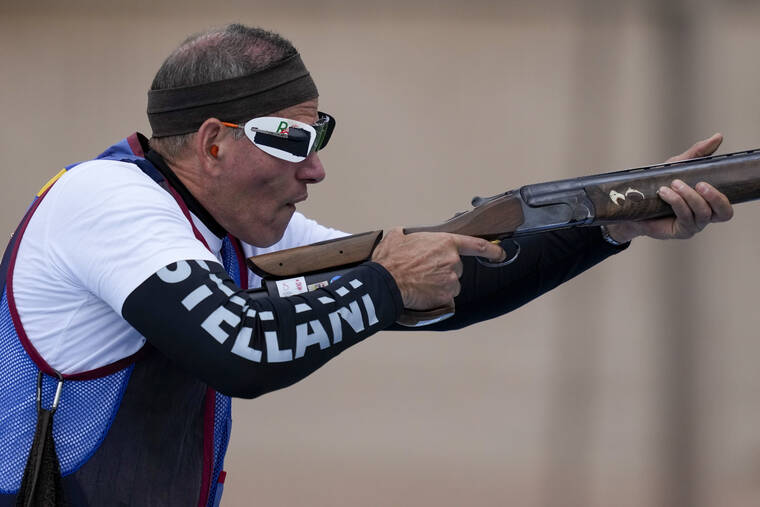CARACAS, Venezuela — It’s been a while — 40 years to be exact — since Venezuelan trap shooter Leonel Martínez last competed at the Olympics.
He was only 20 when he took part in the Los Angeles Games in 1984, but says he’s in better shape now, at 60, as he prepares to compete in Paris after the second-longest gap between Olympic appearances in history.
“I give very little relevance to the number,” Martinez told The Associated Press about his age. “Now I feel better than when I was 20 years old. Now I am much more confident than when I was 25 years old.”
Only Japanese dressage rider Hiroshi Hoketsu waited longer to return to the Olympics. He first competed in Tokyo in 1964 and returned to the Games in Beijing in 2008.
Martínez, who is from Ciudad Ojeda in the western oil state of Zulia, didn’t intend to wait this long. After finishing 41st out of 70 in Los Angeles, Martínez was planning to compete at the Seoul Games in 1988 but was absorbed with personal and business commitments.
He started a company that manufactured disposable medical supplies such as scrubs and met his wife-to-be Magaly Chacín. The couple had two children.
But he sensed something was missing in his life. Almost three decades after his retirement from the sport, Martínez decided to pursue his dream again.
“Something awakened in me. There was a new spark in my life,” Martínez said in an interview at a hotel in Venezuela’s capital of Caracas.
He returned to the sport in 2011 when he qualified for the Pan American Games in Guadalajara, México.
Another trap shooter from South America became his inspiration. Francisco Boza, the Peruvian who won the silver medal in that discipline in Los Angeles in 1984, convinced Martínez that age was just a “state of mind.”
Martínez was amazed in 2015 when he saw Boza, who was 50 at the time, win a gold medal at the Toronto Pan-American Games, beating opponents half his age.
It took several years to start attaining success in regional competitions and get his confidence back.
Martínez secured his spot in Paris after winning the silver medal at the Pan-American Games in Santiago, Chile, last year. He missed gold by one point to Jean Pierre Brol, a 41-year-old from Guatemala.
“Why did so many people fail to make their dreams and goals come true? It’s because they easily gave up,” Martínez said. “You have to persevere. The more you try, the closer you get to reaching that goal.”
Martínez was practically born into the sport.
He was a teenager when his father, Alonso Martínez, who also competed internationally, started to let him use his guns to learn trap shooting — a discipline that requires accuracy to repeatedly aim at clay targets in split-second times.
“I loved it from the start,” Martínez recalled.
Martínez won his first Pan-American silver medal in skeet shooting when the event was held in Caracas in 1983, one year before he competed at the Los Angeles Olympics.
Martínez said he competed in those Games “with a lot of uncertainty” and recognizes that the nerves, anxiety and anguish he experienced undermined his performance.
Now, the Venezuelan shooter says his experience allows him to feel the same emotions of competing at the Olympics, but in a more relaxed way.
“There is a way to control them,” Martínez said. “Trap shooting is a sport in which the mental aspect is bigger than the physical part, unlike other sports such as soccer and tennis.”

